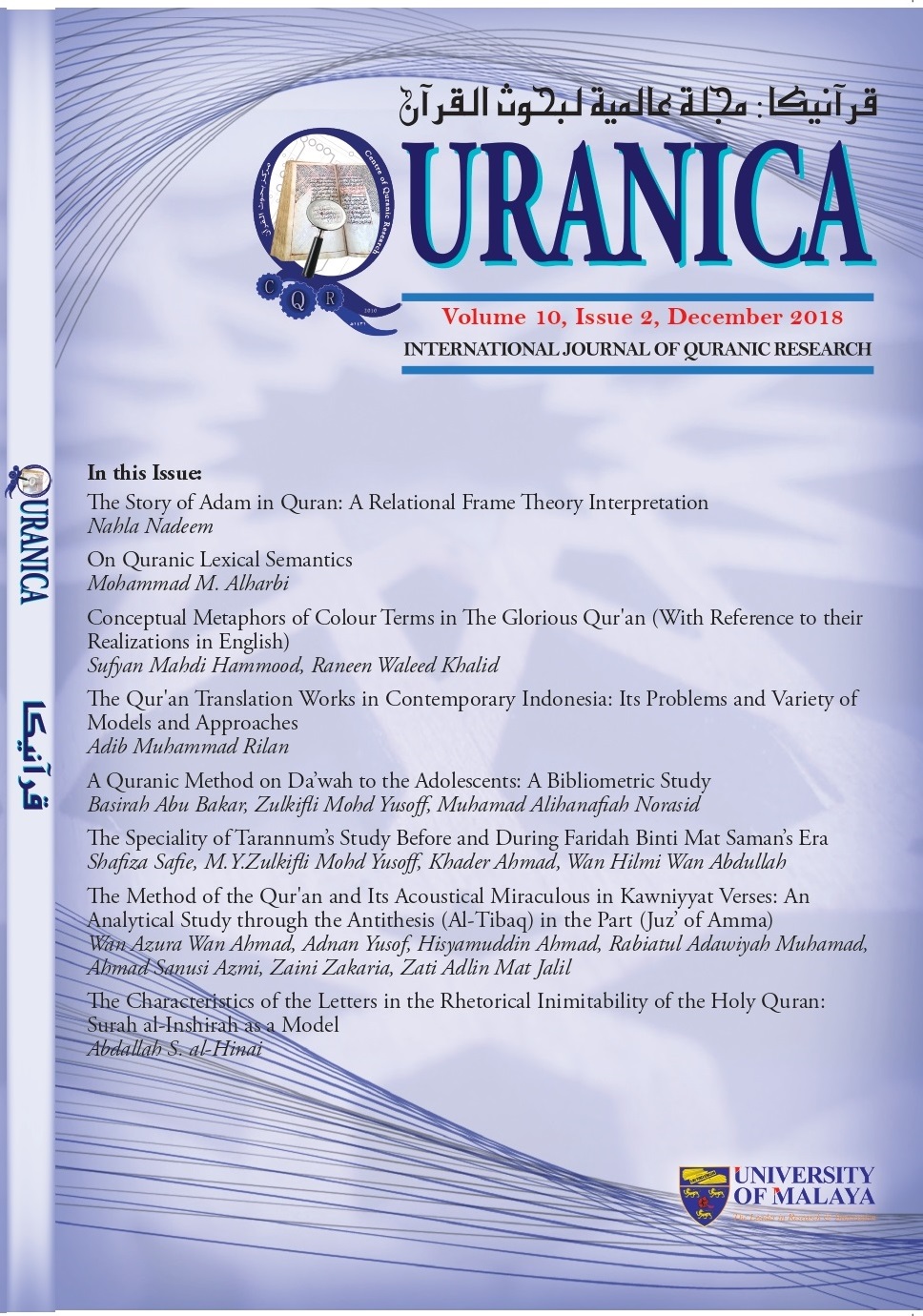The Story of Adam in Quran: A Relational Frame Theory Interpretation
Main Article Content
Abstract
The story of Adam in Quran has often been explored either in relation to strictly Islamic concepts- mainly Adam’s appointment as a Caliph on earth, the original sin and his ultimate repentance- or in comparison to the Bible and Torah versions. The present study aims to explore the story from a cognitive and psycholinguistic perspective. Drawing on the basic concepts of relational frame theory (RFT), the study analyzes the relational framing processes involved in describing the “tree” as forbidden by God and as a source of prosperity and eternity by Satan. The analysis shows how the relational framing and reframing of the “tree’ functioned as the psychological conditions upon which Adam’s attitude towards the tree is formed and changed. The analysis also shows that Adam’s verbal behavior and cognitive abilities that are key to his superiority and appointment as caliph on earth are equally responsible for his fall.
Downloads
Article Details
Disclaimer
QURANICA makes every effort to ensure the accuracy of all its contents. However, opinions, discussions, views and recommendations are expressed in this journal do not necessarily reflect the official policy of QURANICA or views of its editors or publishers. Therefore, QURANICA and its publishers will not be liable for any controversy may be arisen. The journal reserves the right, at its sole discretion, to change its terms and conditions of publications.
Copyright
It is a condition of publication that manuscript submitted to the journal have not been published, accepted for publication, nor simultaneously submitted for publication elsewhere. By submitting a manuscript, the author(s) agrees that copyright for the article is transferred to the publisher, if and when the manuscript is accepted for publication.
